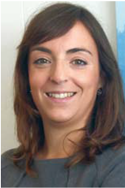A promising diagnosis – Grupo Hospitalario Quirón
Healthcare is a ‘must have’ rather than a ‘nice to have’, says Isaac Millán, and in the face of the crisis, the sector is alive with opportunities
The healthcare sector has proved resilient in the recession, according to Isaac Millán, Head of Legal at Grupo Hospitalario Quirón – the largest network of private hospitals in Spain.
“Of course, we have felt the effects of the crisis, but while the industry has had to lower prices, we are in a ‘crucial sector’ – healthcare,” he explains. “People don’t see us as a luxury but as a key service, and that has helped.”
Admissions
Millán started his career working at his father and uncle’s Barcelona boutique law firm while studying for his degree. After graduating he moved in-house for a six-month assignment as a lawyer for Zurich Financial Services, after which he got a scholarship from the Catalonian Government to go New York. “I was working for COPCA, the office for exports and nationalisation of Catalan companies, which gave me a great insight into business,” he explains.
Returning to Spain as a trade finance lawyer at Banco Sabadell, he immersed himself in the banking sector, before moving to the corporate department of The Royal Bank of Scotland plc.“I really loved the banking sector, especially the big transactions that were happening between 2006-2008 – before the banking crisis hit!”
Given the crisis, Millán was looking for his next step, and he took the opportunity to enter an industry that was far more resilient to the times and joined Occidental Hotels & Resorts as Director of Legal.
Two years later, he was headhunted as Head of Legal for USP Hospitales, which was bought last year by private equity company, Doughty Hanson, forming Grupo Hospitalario Quirón. And he has been there ever since.
Millán is still very much involved with financing issues, however, such as big syndicated loans and credit.
“Given that the Group is owned by a private equity company, having a background in finance gives me a much better understanding of the business. And, more importantly, you always need to understand what the investors want and need.”
Inpatient and outpatient
Millán has a team of five lawyers, managing as much in-house as possible. But for big value corporate transactions, litigation, competition and international matters, he outsources.“We have certain law firms that are our ‘go to’ choices when matters arise – such as Araoz & Rueda – and we work closely with international firms such as Allen & Overy, Freshfields and Linklaters, among others.”
“If I know a lawyer in a specialised sector then I go to them but otherwise I go to the international firms,” he says. “You are always assured that they have the relevant experience and necessary expertise.”
For litigation they use Garrigues, for example, in particular because they have offices in every city in which the Group has a hospital. “This direct contact is key because every region is different.”Millán then uses smaller firms within each region when they need very specific expertise.
Millán is not a fan of the ‘hourly’ rate, and says that times are definitely changing as most matters are now done on a fixed fee basis. “Law firms are much more realistic, and you don’t have to ask for a fixed fee, they just offer it to you.”
He cites understanding the needs of the client, commitment, cost and expertise as crucial elements for his externals. But most important is the relevant lawyer’s involvement. “The person you rely on has to walk with you the entire way through your project or problem.”
Full recovery
Spain is potentially facing its biggest ever public-health privatisation, although currently the process is frozen under a recent Court injunction, and it has been the subject of numerous demonstrations. “It affects us in the sense that we see the public’s opinion of the healthcare sector, but I believe that the future is going to see much more collaboration between the public and private sectors because there are opportunities for both sides – we have wonderful hospitals in both sectors and if we help each other out, we could see a huge improvement in public perception.”
But for now, the merger has left Millán and his team busy reorganising the Group, and they are currently creating a new global company structure.
“The big change post-merger, however, has been the number of opportunities as we are looking at,” he says. “The bigger you are, the more opportunities you have, and now that we are the leading player in the sector, we are looking at many interesting acquisitions and transactions.”
Therefore the Group is on an expansion drive, and Millán couldn’t be happier to have landed in a sector that is able to capitalise on opportunities, rather than being in ‘survival’ mode.
Isaac Millán is Head of Legal at Grupo Hospitalario Quirón.












